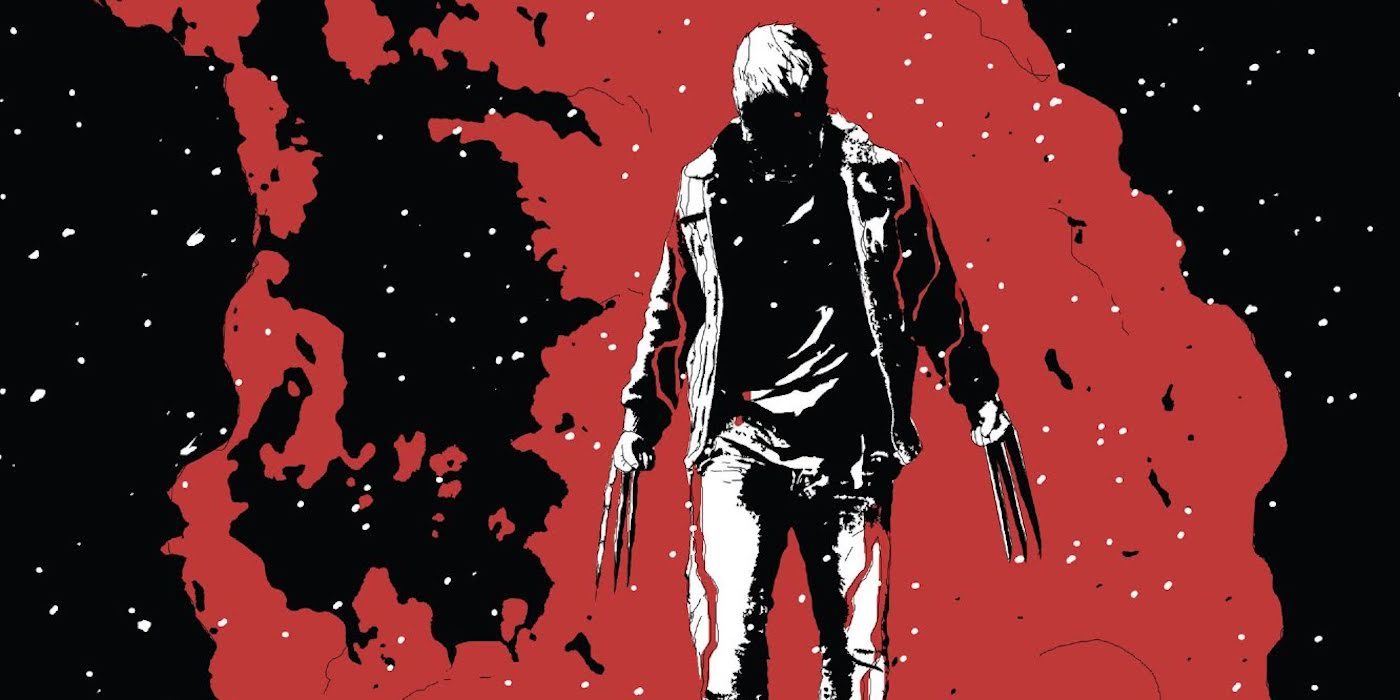WARNING: The following article contains major spoilers for Old Man Logan Annual #1 by Ed Brisson, Ryan Cady, Simon Di Meo and Hayden Sherman, on sale now!
Now, this might come to no surprise, but superheroes die. A lot. And while they rarely stay dead, their absence often becomes a time for reflection on the legacy they leave behind. This is because, even when it comes to comic characters in capes, legacies are immortal. In fact, the idea of legacy might be the biggest pillar upon which comic book mythology rests. The rich history of characters and their exploits define them over the course of decades. The heroes we know today are rarely the same as when they first appeared. This is by no means a case of inconsistency. No, it’s more a case of evolution and changing with the times. Looking back at the heroism of a character is to honor their memory.
Retrospectives on the careers of heroes are often explored in “final stories.” Comic books have produced a number of last hurrahs for plenty of characters, some of which are canonical, while others are set in an alternate future. Marvel Comics published a series of one-shots and limited series that chronicled potential final acts for many of their superheroes in the early aughts under the appropriately titled banner The End. One of the more memorable issues of this graphic storytelling experiment featured Frank Castle, the Punisher. Firebrand comic scribe Garth Ennis and artist Richard Corben's Punisher: The End took Castle’s quest for vengeance to its utmost extreme, leaving the world in ruin.
RELATED: Old Man Logan Steals A Deadly Plot Thread from Fox’s Logan
Despite how poignant and jaw-dropping Ennis and Corben’s work was, it did little to really leave a legacy for the Punisher (after all, who was there to remember the legend of Frank Castle at the end of the series?). Thankfully, Old Man Logan Annual #1 has presented the Punisher's end in a very heavyhearted and surprisingly quiet manner, which stands in stark contrast to the often booming life Castle lived as the most feared vigilante in the Marvel Universe.
In the world of Old Man Logan, originally established by Mark Millar and Steve McNiven a decade ago, superheroes are all but extinct and the iconography they left behind has been co-opted by marauders and criminals to strike fear into the hearts of common folk just trying to make a living in a villain-ruled dystopia. It’s a tragic bastardization of symbols that were often utilized to evoke hope and safety. One group of fiends introduced after Old Man Logan grew beyond the bounds of "The Dark Knight Returns but with Wolverine" wisely chose a symbol that represents quite the opposite: fear. This group presented that message through tactics utilized by Frank Castle, an anti-hero who was believed to be long dead.
The Punishers, as they called themselves, stripped their namesake's iconic skull and black outfit of its heroism and rerouted the signifiers to indicate trouble for all walks of life, not just criminals. In Old Man Logan Annual #1, Frank Castle reclaims his title as the one, true Punisher -- as well as a memento of what spawned his drive for vigilantism. To do so, he winds up fighting along side one of his oldest frenemies, Logan.
RELATED: Old Man Logan Annual #1 (Preview)
Frank, now old and no longer the raging bull he once was, does not stand for long against the gang of oppressors who took everything from him, but he stands long enough. He helps Logan free the children taken captive by the Punishers and reclaims the keepsakes and photos of his deceased family. Instead of dying in a fit of rage brought on by his endless, primal drive, Frank Castle simply lets go. There is something truly beautiful in that. A war that seemed to have no end comes to a close with a whisper and a fleeting moment of peace.
As much as it pains us to see this version of Frank make a criminally brief appearance, it does open up the world of Old Man Logan for more stories of this ilk. Not all ends have to come with a grand crescendo of ultra violence or battles against mortal enemies. Sometimes, a hero can just slip away and give those who knew them a small token of their personality in the hopes that maybe, just maybe, their story will live on.

